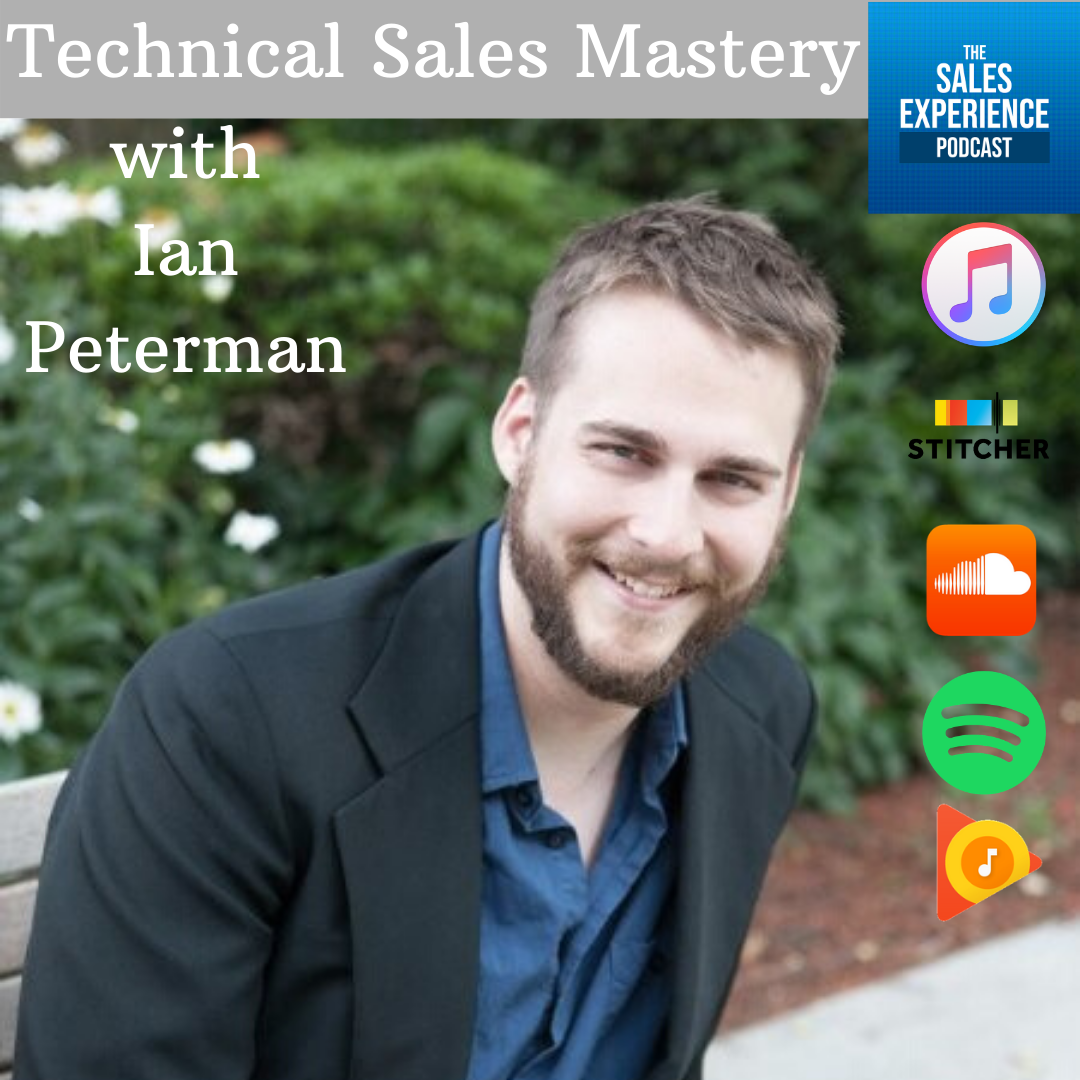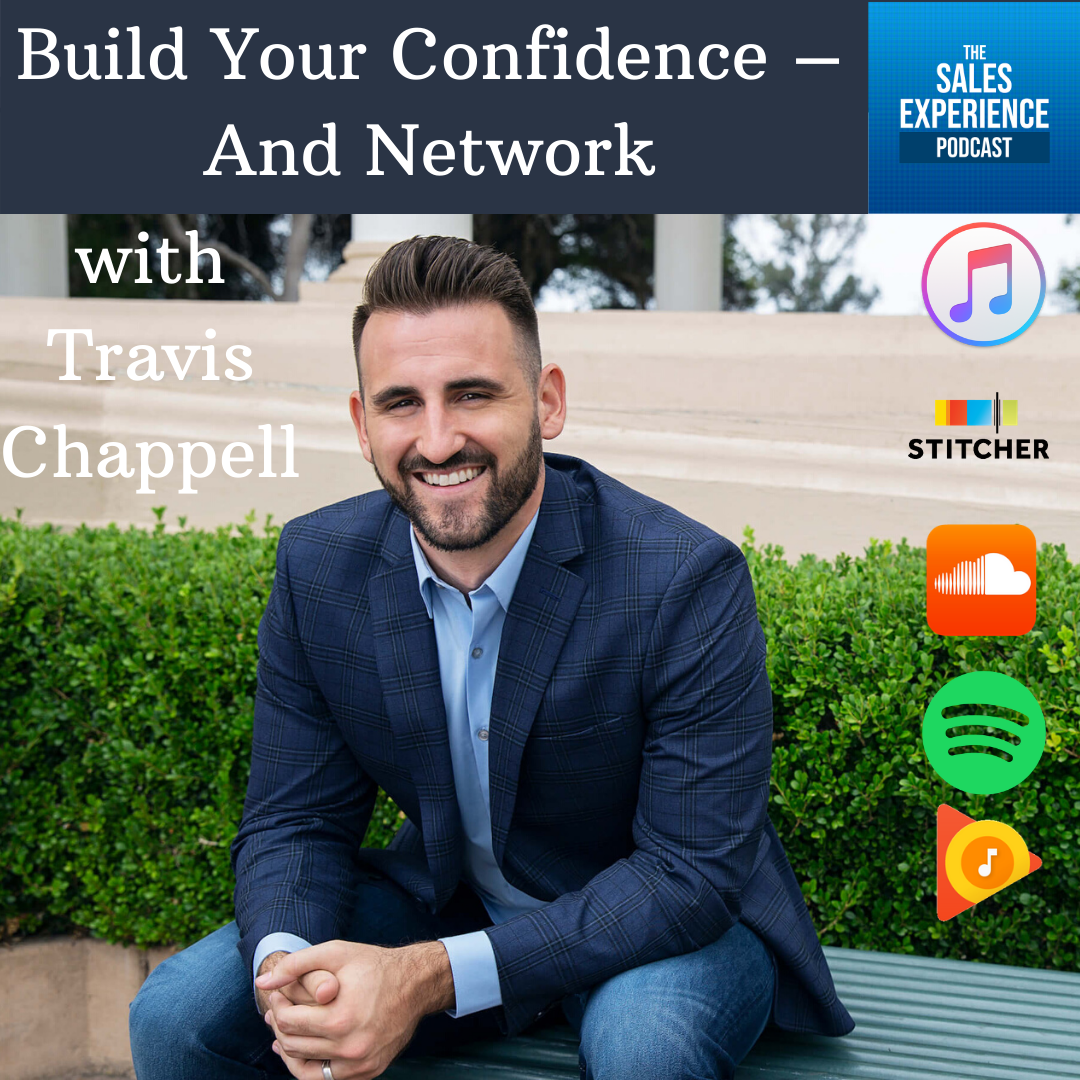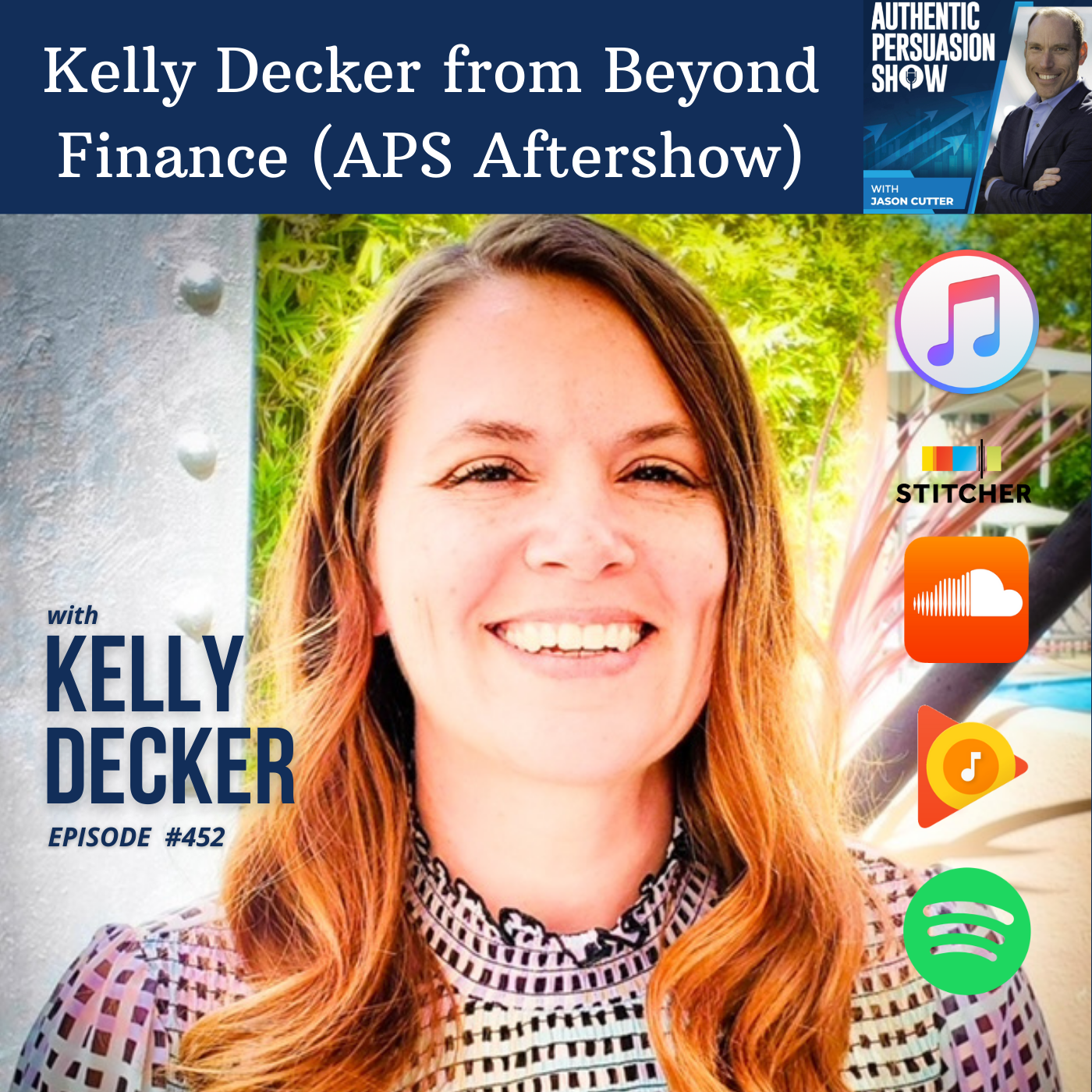Episode Transcript
[00:00:00] Speaker A: Welcome to the authentic persuasion show. On this episode, I want to replay part of a previous show.
[00:00:05] Speaker B: Maybe you heard the original full length.
[00:00:07] Speaker A: Episode and this could be a great refresher and reminder. Or maybe this is your first time hearing this content and the timing could be just right to help you leverage authentic persuasion today in your role, no matter what. Here's to your success.
[00:00:21] Speaker B: This is the authentic persuasion show.
[00:00:25] Speaker C: It.
[00:00:26] Speaker B: I thought you could do this. You promised me this. And then here's what happened. Sometimes it's salespeople, like I said earlier, where it's, I'm promising you this. You sign up as a client, you become a client. Now, your experience is different because I over promised and I oversold how amazing we are and what we do, and then it's not actually that, right? Because I'm just excited about my commission and I don't really care about your actual experience as a customer. And so that bait and switch is real. We've all experienced it. We've all dealt with that. The government does what it can to put in regulations so that advertisements don't say that.
[00:01:04] Speaker C: Right.
[00:01:04] Speaker B: Now, if you look at car sales ads, it'll say one car at this price, right? We have these cars for as low as $200 a month.
[00:01:12] Speaker C: Right?
[00:01:12] Speaker B: There's one car at that price, maybe has three tires, right. Doesn't work too well.
No amenities.
[00:01:20] Speaker C: Right?
[00:01:20] Speaker B: Like, nobody checked any boxes when they ordered that car. And it is the bare bones basic, but they want to get you into the dealership, and so they have to say how many they have at that price. So it's not too misleading, but you have to pay attention to that. But that's what happens in sales, especially if you feel the pressure in the moment to answer a question about price terms, fees, agreements, things like that, without knowing the whole picture. So again, remember, prescription before diagnosis is malpractice. Now, here's the big thing. With sales, there's no governing body. With sales, there's no code of ethics officially with sales, there are some degreed programs out there, but there is no degree that. Then you have to take some tests and then get certified and approved to go into sales. You just show up. A lot of organizations, you just show up. And after maybe an hour or two of training, here's your phone, here's your desk. Here's some leads. Nobody's closed these yet. Good luck. Go sell people on stuff.
[00:02:25] Speaker C: Right.
[00:02:26] Speaker B: And we'll kind of coach you along the way. And so not only is there no ethics code of ethics, board regulations, it's so far the other way in so many areas where it's just dangerous, it's just hazardous. And it is bad for consumers and bad for salespeople because they have a rough time at it and they're mostly only doing harm whether they mean to or not.
[00:02:47] Speaker C: Right.
[00:02:47] Speaker B: I'm not just saying everybody out there in sales is trying to do things with manipulation and malice and hurt people, but a lot of times just the negligence, it just didn't know. And then that leads to unhappy customers or things that don't work out well or bad clients. Right. It works. They become a client and then they didn't get what they were told they were going to get from a sales rep who didn't know what it is they were actually going to get. And that happens a lot. So the key is you've got to make sure you diagnose first and you prescribe. Here's the biggest thing, and this takes a boatload of confidence to be able to draw that line in the sand and take the consequences as they might happen. The key is if somebody pushes you early, before you're willing to give your prescription, before you're willing to do the next step, which is the hope phase, which we're going to talk about next week, if somebody's pushing you for rates, for terms, for fees, for contract, for agreement, for whatever that looks like too early in your process and you're not ready, remember, you're the professional. I challenge you to be the sales professional. Even if you don't have sales professionals, your title, even if you're not a sales professional right now, you don't think you are. I challenge you to operate like that, act as if think that you are, and then treat your customers and yourself like you are a sales professional, which means someone's pushing you early like that doctor for a diagnosis on the spot, over the phone. Hey, my leg hurts. What do you think?
I'm thinking I need surgery. Okay, sounds good.
Here's a referral. Go get surgery. If someone's pushing you for that, you've got to be able to stand up and say no.
[00:04:25] Speaker C: Right.
[00:04:27] Speaker B: You've got to say no, which is I can't give you that. I don't know.
[00:04:31] Speaker C: Right.
[00:04:31] Speaker B: I use I don't know all the time or it depends. Well, what's, what's the fee going to be for this? How much is it going to cost? I don't know. Well, what do you mean you don't know? Why don't know? Because it depends. There's many different factors. Whatever you're selling it could be a number of people on the team or number of seats, or the size of the license, or it could be the terms of the engagement or the hours spent on a project or whatever it is. Right. The amount of debt somebody has or the kind of car they want to finance. It always depends. There are factors. If there's no factors, they just go online. Even insurance. Like, what am I going to pay for insurance? I don't know.
[00:05:09] Speaker C: Right.
[00:05:09] Speaker B: So what? Imagine if you called up an insurance carrier and said, hey, what's my insurance going to be? What's the best you can do for insurance on my three cars? Oh, $150 a month. Okay, cool. Sounds good. Let's move forward, right? Oh, it turns out I have these three cars and they're different expenses or new their age. And of course, it's not $150, but you have to be able to draw the line in the sand and say no. And I know this is so tough, but the key is to draw that line and not tell them. Say, it depends.
[00:05:41] Speaker C: Right?
[00:05:42] Speaker B: I don't know. And a lot of people are going to say, how do you not know? Don't you do this for a living? Yes, but it depends on several factors. And you've got to have that ready. You've got to have that scripting ready. You've got to know that and say, it depends on this, this and this, and then get back on track.
![[736] Standing Up and Saying No](https://episodes.castos.com/salesexperiencepodcast/images/1684518/c1a-4d8w-5rv7w29mbpp5-h4pyza.png)


